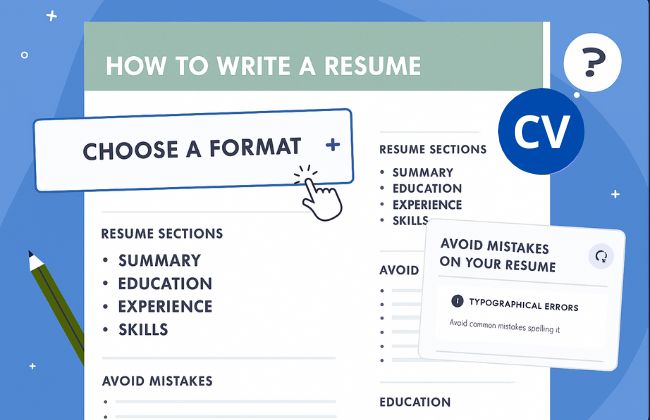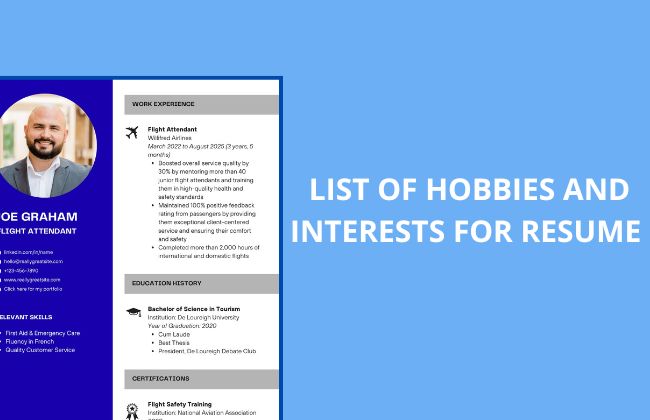Feeling the need for a raise but unsure how to ask? Navigating conversations about salary can be intimidating, especially when trying to balance professionalism with confidence.

For many, raising the subject face-to-face can heighten nerves and lead to awkward exchanges. That’s where email comes in—a powerful tool that allows you to carefully articulate your case, provide supporting details, and keep control of the conversation’s tone.
Crafting the right message is key to making a positive impression and setting yourself up for success. Your email should highlight your achievements, your value to the company, and create a clear, polite request for salary review. But how exactly do you draft such an email without sounding overly demanding or unsure of yourself?
In this article, we’ll explore effective strategies for requesting a salary increase via email. From timing your request to articulating your accomplishments, we’ll provide practical tips and templates to help you communicate your value confidently.
Table of Contents
Why Ask for a Raise via Email?
Using email to request a raise offers several advantages, particularly for those who may feel nervous about discussing money in person.
Below are key reasons why email is an effective medium:
- Clarity and Precision: Writing allows you to organize your thoughts, articulate your achievements, and present a polished case without the pressure of an in-person conversation.
- Time for Review: An email gives your manager time to consider your request, review your contributions, and consult with HR or other decision-makers.
- Professional Tone: A well-crafted email maintains a formal tone, which is ideal for discussing sensitive topics like salary.
- Documentation: An email creates a written record of your request, which can be useful for future reference or follow-up discussions.
- Comfort for Introverts: For those who find face-to-face conversations intimidating, email provides a less stressful way to initiate the conversation.
Templates for Asking for a Raise via Email
Below are three email templates tailored to different scenarios: performance-based, increased responsibilities, and market comparison. Each template is concise, professional, and adaptable.
Template 1: Performance-Based Raise
This template is ideal when your contributions have directly impacted company success.
Subject: Request for Salary Review Discussion
Dear [Manager’s Name],
I hope this message finds you well. I’m writing to express my gratitude for the opportunity to contribute to [Company Name] as [Your Job Title]. Over the past [time period], I’ve been fortunate to achieve significant milestones, and I’d like to discuss the possibility of a salary review.
In my role, I’ve [specific achievement, e.g., “increased sales by 15% through targeted strategies”] and [another achievement, e.g., “streamlined processes, saving 10 hours weekly”]. These accomplishments have positively impacted [specific team or company goal]. Based on my contributions, I believe a salary adjustment would reflect my value to the team.
I’d appreciate the opportunity to discuss this further in a meeting at your convenience. Thank you for considering my request, and I look forward to continuing to contribute to [Company Name]’s success.
Best regards,
[Your Full Name]
[Your Job Title]
Template 2: Increased Responsibilities
Use this template if you’ve taken on additional duties beyond your original role.
Subject: Salary Review Request Based on Expanded Role
Dear [Manager’s Name],
Thank you for your ongoing support in my role as [Your Job Title] at [Company Name]. I’m writing to request a salary review in light of the additional responsibilities I’ve taken on and to discuss how I can continue to support our team’s goals.
Since [time period or event], I’ve assumed [new responsibility, e.g., “leadership of a 5-person team”] and [another responsibility, e.g., “oversight of a new client portfolio”]. These duties have expanded the scope of my role, contributing to [specific outcome, e.g., “a 20% increase in project efficiency”]. I believe these contributions warrant a review of my compensation.
Could we schedule a time to discuss this further? I’m eager to continue delivering value to [Company Name] and appreciate your consideration.
Sincerely,
[Your Full Name]
[Your Job Title]
Template 3: Market Comparison
This template is suitable when your salary is below the market rate for your role and experience.
Subject: Request for Compensation Review
Dear [Manager’s Name],
I hope you’re doing well. I’m grateful for the opportunity to grow with [Company Name] as [Your Job Title]. After reviewing my role and contributions, I’d like to request a salary review to align my compensation with current market standards.
Based on my research using [source, e.g., “Glassdoor and PayScale”], the average salary for [job title] in [location] with [years] of experience is [salary range]. Given my contributions, including [specific achievement, e.g., “leading a project that boosted revenue by 12%”], I believe a salary adjustment would reflect my value and industry standards.
I’d welcome the chance to discuss this in a meeting at your convenience. Thank you for your time and consideration.
Best regards,
[Your Full Name]
[Your Job Title]
Choosing the Best Time to Ask for a Raise
Timing is critical when asking for a raise. Choosing the right moment can significantly impact the outcome. Here are factors to consider:
Key Moments to Request a Raise
- After a Major Accomplishment: Have you recently completed a high-impact project, exceeded performance goals, or brought in significant revenue? This is a great time to highlight your contributions.
- During Performance Reviews: Many companies conduct annual or semi-annual reviews, which are natural opportunities to discuss salary adjustments.
- Company Success: If your organization is experiencing growth, profitability, or a successful quarter, leadership may be more open to rewarding employees.
- Before Budget Planning: Some companies set budgets in advance. Asking before the fiscal year budget is finalized can increase your chances of securing a raise.
Times to Avoid
- During Company Struggles: Avoid asking for a raise during layoffs, financial difficulties, or major organizational changes.
- After Poor Performance: If you’ve recently received negative feedback, address those concerns before requesting a raise.
- During Busy Periods: Avoid times when your manager is overwhelmed, such as during a major project deadline or peak season.
Pro Tip: Research your company’s salary review cycle. If raises are typically discussed in Q4, aim to send your email a few months in advance to allow time for consideration.
Presenting a Compelling Case in Your Email
To convince your employer that you deserve a raise, you need to build a strong case supported by evidence.
Here’s how to structure your argument:
1. Highlight Your Achievements
- Quantify Results: Use numbers to demonstrate your impact, such as “Increased sales by 20%” or “Reduced project turnaround time by 15%.”
- Show Value: Tie your accomplishments to the company’s goals, such as improving customer satisfaction, streamlining processes, or driving revenue.
- Include Recent Examples: Focus on contributions within the past 6–12 months to keep your case relevant.
2. Research Market Salaries
- Use resources like Glassdoor, PayScale, or LinkedIn Salary to understand the market rate for your role, industry, and location.
- Compare your current salary to the market average and highlight any discrepancies (e.g., “My research indicates that the average salary for a [Job Title] in [Location] is $X, while my current salary is $Y.”).
3. Emphasize Additional Responsibilities
- Have you taken on new tasks, led a team, or expanded your role? Document these changes to justify why your compensation should reflect your increased responsibilities.
- Example: “Since taking on [new responsibility], I’ve managed a team of X and implemented Y, resulting in Z.”
4. Showcase Professional Growth
- Mention certifications, training, or skills you’ve acquired that enhance your value to the company.
- Example: “After completing [Certification], I’ve been able to improve [specific process or outcome].”
Sample Table: Building Your Case
| Category | Example |
| Achievements | Increased client retention by 15% through improved customer service protocols |
| Market Salary | Average salary for [Job Title] in [Location] is $85,000 (Source: PayScale) |
| New Responsibilities | Took on project management for [Project Name], saving 10 hours per week |
| Professional Growth | Completed [Certification] in [Skill], improving team efficiency by 20% |
Writing an Effective Raise Request Email
Crafting a compelling raise request email requires careful planning and structure. Below are the key steps to ensure your email is professional, persuasive, and effective:
Step 1: Research and Preparation
Before drafting your email, gather evidence to support your request. This preparation strengthens your case and demonstrates professionalism.
- Evaluate Your Contributions: Reflect on your achievements, such as exceeding performance goals, taking on additional responsibilities, or contributing to company success.
- Research Market Salaries: Use resources like Glassdoor, PayScale, or industry reports to understand the market rate for your role, experience, and location.
- Review Company Policies: Check your company’s process for salary reviews. Some organizations have specific timelines or protocols for raise requests.
- Quantify Your Impact: Where possible, use numbers to highlight your contributions (e.g., “Increased sales by 15%” or “Reduced project turnaround time by 20%”).
Step 2: Structure Your Email
A well-structured email is professional and easy to follow. Use the following format:
- Subject Line: Keep it clear and professional (e.g., “Request for Salary Review Discussion”).
- Greeting: Address your manager formally (e.g., “Dear [Manager’s Name]”).
- Introduction: Briefly state the purpose of the email and express gratitude for your role.
- Body: Present your case, highlighting achievements, responsibilities, and market data (if applicable).
- Request: Clearly state your request for a raise and propose a meeting to discuss further.
- Closing: Thank your manager for their time and express enthusiasm for continued contributions.
Step 3: Tone and Language
Your tone should be professional, confident, and respectful. Avoid sounding entitled or demanding. Use phrases like:
- “I believe my contributions justify a salary review.”
- “I would appreciate the opportunity to discuss my compensation.”
- “Based on my research, I’ve found that similar roles are compensated at…”
Step 4: Supporting Evidence
Include specific examples of your achievements. For instance:
- Performance-Based: “I successfully led a project that increased client retention by 10%.”
- Increased Responsibilities: “Since taking on [new task], I’ve managed a team of 5 and streamlined processes.”
- Market Comparison: “According to [source], the average salary for [role] in [location] with my experience is [amount].”
Step 5: Propose a Follow-Up
End your email by requesting a meeting to discuss your request in person or virtually. This shows you’re open to feedback and serious about your proposal.
Common Mistakes to Avoid
- Being Vague: Avoid general statements like “I work hard.” Provide specific examples.
- Focusing on Personal Needs: Don’t base your request on personal financial needs (e.g., “I need to pay bills”). Focus on your value to the company.
- Overly Long Emails: Keep your email concise, ideally under 300 words.
- Ignoring Timing: Avoid requesting a raise during a company’s financial struggles or outside of performance review cycles, unless your contributions are exceptional.
Related Articles:






